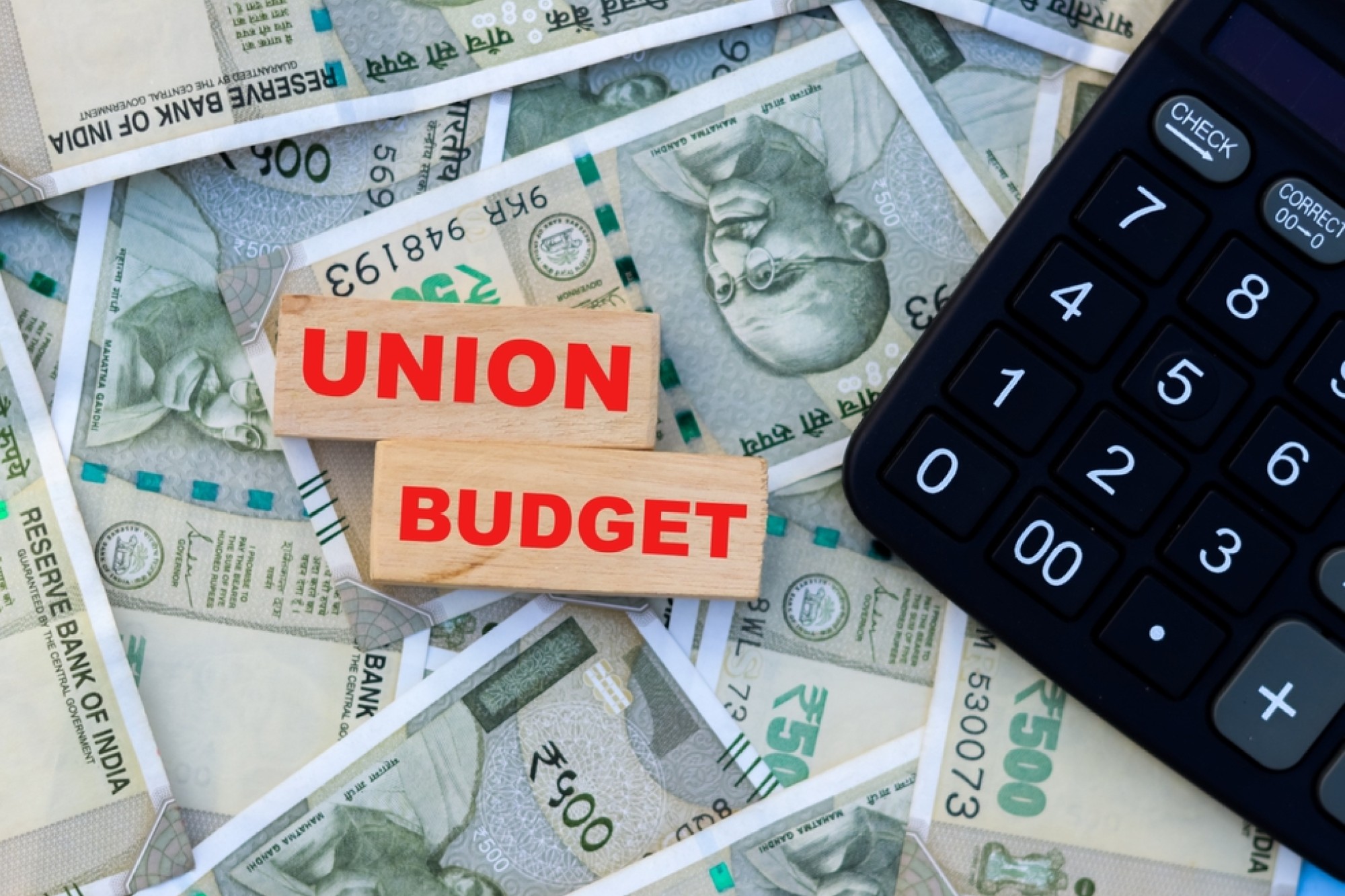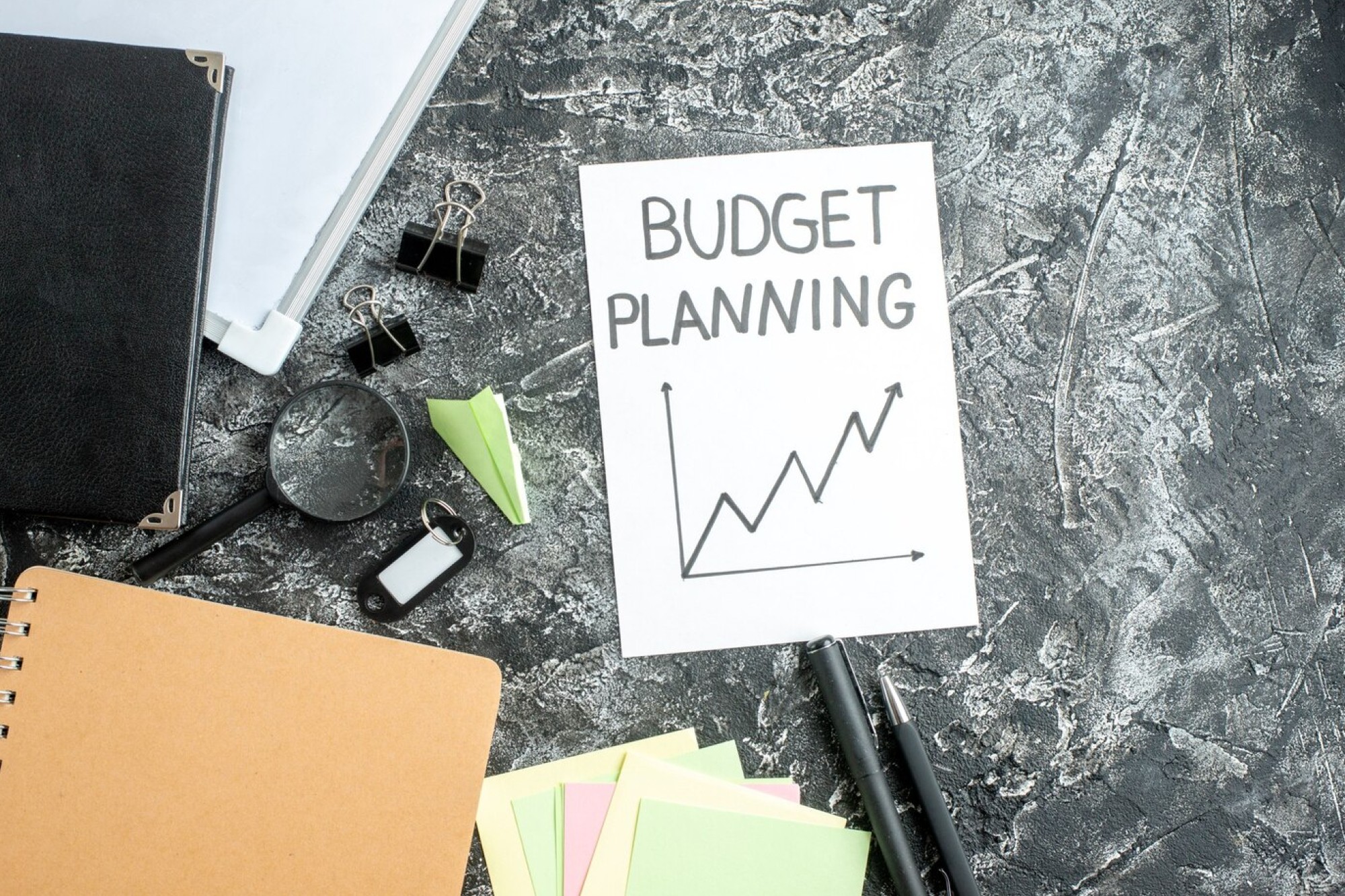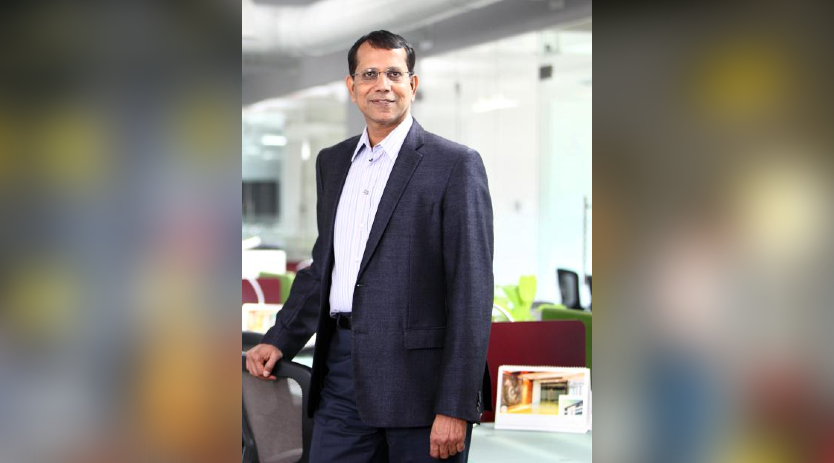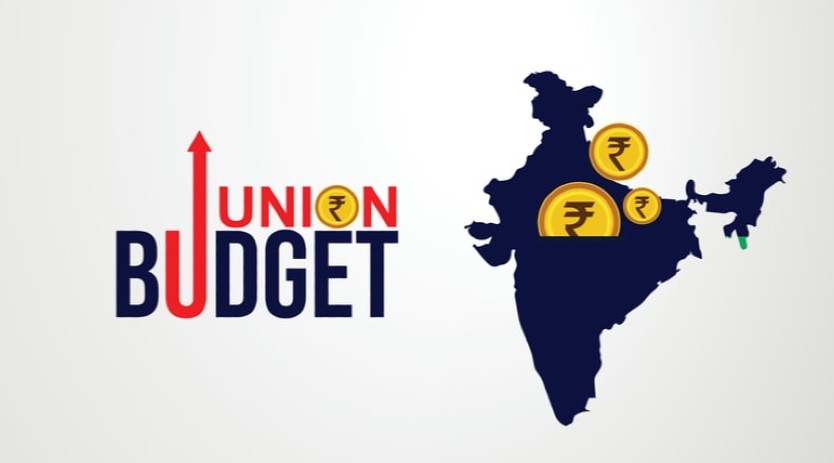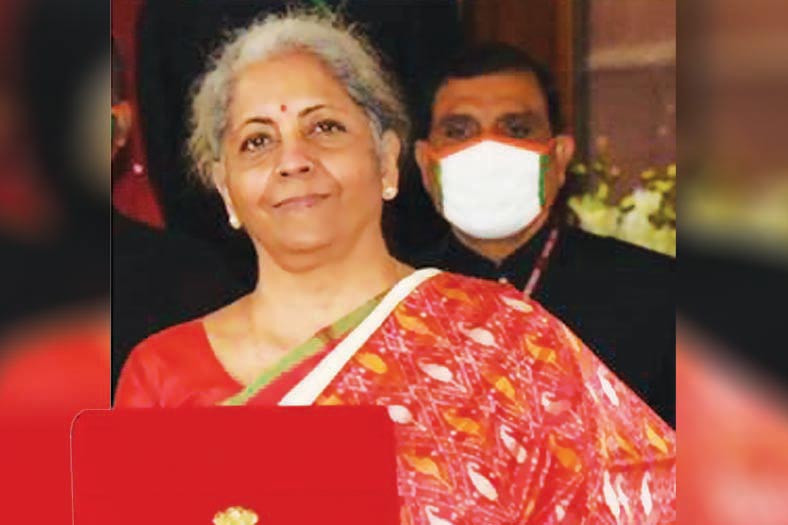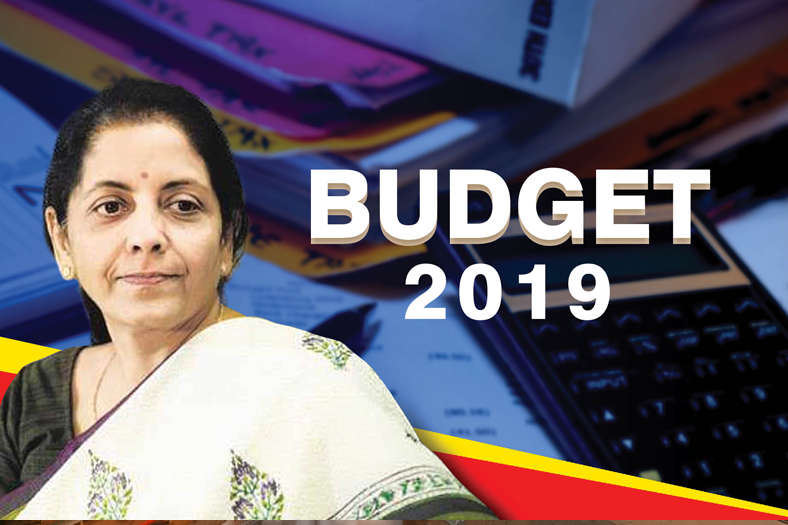Budget 2024 enlightens sustainable development, innovations and green initiatives for ‘Viksit Bharat’
By OEM Update Editorial February 2, 2024 11:29 am IST
The Interim Union Budget for the financial year 2024-25 strongly emphasises sustainable solutions, highlighting 14 key initiatives that align with the government’s vision for comprehensive growth.
“The next 5 years will be years to realise the goal of becoming a developed country by 2047”- Ms. Nirmala Sitharaman, the Union Finance Minister.
The budget’s features focus on bringing continuous sustainable growth to the economy. The budget focuses on fiscal consolidation, infrastructure, agriculture, green growth, and railways. However, no changes were made to the tax rates. The next 5 years will be years to realise the goal of becoming a developed country by 2047. The Finance Minister, said, “Trinity of democracy, demography and diversity can fulfill aspirations of every Indian.” The people of India are looking ahead to the future with hope and optimism. With the ‘whole of nation’ approach of ‘Sabka Prayas’, the country strides towards ‘Atmanirbhar Bharat’, committed to ‘Panch Pran’, and lays solid foundations for the ‘Amrit Kaal’.
Solutions through innovation
This corpus in the budget will significantly encourage the private sector to scale up research and innovation in sunrise domains. Building on the tripling of the capital expenditure outlay in the past four years, resulting in a huge multiplier impact on economic growth and employment creation, the outlay for the next year is being increased by 11.1 percent to eleven lakh crore. This would be 3.4 per cent of the GDP. New-age technologies and data are enabling new economic opportunities and facilitating the provision of high-quality services, including those at the ‘bottom of the pyramid. She announced a corpus of rupees, one lakh crore, would be established with a fifty-year interest-free loan. The corpus will provide long-term financing or refinancing with long tenors and low or nil interest rates. This will encourage the private sector to scale up research and innovation in sunrise domains.
India’s 2024 budget announcement underscores a pivotal shift towards a digital and inclusive economy, focusing on technological advancements, investments in R&D, infrastructure building and emphasis on women & skilled workforce in nation-building. This strategic direction is critical for a self-reliant nation and essential for continuous and sustainable growth in achieving the ambitious $8 trillion economy status in 2030. At Hexagon, we align our efforts with India’s vision of the 3rd largest economy, contributing to a future where technology, humanity and inclusivity drive progress and prosperity together, says Sridhar Dharmarajan, EVP & MD India at Hexagon MI.
Rationalising tax rates
The corporate tax rate decreased from 30 percent to 22 percent for existing domestic companies and 15 percent for certain new manufacturing companies. Mayuresh Raut, Co-founder & Managing Partner, Seafund said the extension of tax benefits for sovereign wealth funds expiring on 31st March 24 to 31st March 25 is a good signal from the government to indicate that there will be a continuation of beneficial policies and friendly institutional investor policies.
Upskilling mission
The Skill India Mission has trained 1.4 crore youth, upskilled and reskilled 54 lakh youth, and established 3000 new Industrial Training Institutes (ITIs). It will boost the PLI and Make in India programs. This approach may promote the manufacturing sector’s contribution to the GDP from 17 percent to 25 percent by 2047. Our government’s priority is to ensure timely and adequate finances, relevant technologies, and appropriate training for micro, small, and medium enterprises (MSME) to grow and compete globally. Orienting the regulatory environment to facilitate their growth will be an important element.
In reflecting on key points, Pankaj Shroff, CFO of Porter, observes that the Interim Budget 2024-2025 underscores the principles of inclusive growth and empowerment. The impactful outcomes of the Skill India Mission, training 1.4 crore youth, demonstrate a strong commitment to skill development and enhancing the nation’s workforce. Additionally, launching a one-lakh-crore-rupee financing corpus is expected to empower the private sector, allowing for significant scaling up of research and innovation in emerging sectors. This is a crucial mechanism for building the nation’s capabilities and fostering development. Shroff also notes the positive effects of the PM Gati Shakti initiative, which has enhanced logistics efficiency and reduced costs, contributing to economic sustainability.
Green energy future
Union Budget 2024 highlights ‘Green Growth’. The Finance Minister has unveiled a comprehensive plan to achieve the nation’s ambitious Net Zero target by 2070 in Budget 2024. The finance minister has allocated significant resources to boost the green energy sector, focusing on harnessing India’s vast offshore wind energy potential. In meeting commitment for ‘net-zero’ by 2070, a few measures include: ‘Viability gap funding will be provided for harnessing offshore wind energy potential for the initial capacity of one giga-watt. A coal gasification and liquefaction capacity of 100 MT will be set up by 2030. This will also help reduce imports of natural gas, methanol, and ammonia. Phased mandatory blending of compressed biogas (CBG) in compressed natural gas (CNG) for transport and piped natural gas (PNG) for domestic purposes will be mandated. Also, financial assistance will be provided to procure biomass aggregation machinery to support collection.
A novel initiative involving bio-manufacturing and bio-foundry is set to be launched to promote environmentally sustainable practices. This program aims to offer eco-friendly alternatives such as biodegradable polymers, bio-plastics, bio-pharmaceuticals, and bio-agri-inputs, contributing to a transformation based on regenerative principles. Suyash Gupta, Director General of the Indian Auto LPG Coalition, praises the government’s emphasis on green growth in the budget. He highlights the intrinsic connection between the transport sector and overall economic growth and commends the commitment to transitioning towards a low carbon-intensity economy. However, Gupta expresses a desire for more detailed provisions that encourage the integration of cleaner alternative fuels, like auto LPG, into public mobility policies to address pollution and promote green growth effectively.
Arun Misra, CEO of Hindustan Zinc Limited, applauds the interim budget for unlocking India’s growth potential and fostering a sustainable future. The allocation of INR 11,11,111 crore for infrastructure, constituting 3.4 percent of the GDP, is seen as a game-changer for sectors like metals, logistics, and green energy. Initiatives such as railway corridors, metro expansion, Vande Bharat trains, and new airports are expected to enhance efficiency and job creation. The focus on modernising airports, ports, greenfield development, and rooftop solar aligns with the vision of ‘Green Growth,’ propelling India towards net zero. The emphasis on green energy projects, offshore wind, and expanding the electric vehicle (EV) ecosystem is seen as significant steps towards sustainability, stimulating demand for critical minerals.
Dr. Sudhir Mehta, Founder & Chairman of Pinnacle Industries & EKA Mobility, notes the comprehensive approach to sustainable development in the budget. He highlights initiatives such as the rooftop solarisation scheme, the conversion of rail coaches to Vande Bharat standards, and the ambitious goal of establishing coal gasification and liquefaction capacity by 2030. Additionally, introducing a new bio-manufacturing and bio-foundry plan and legislation for gradual CNG and biogas blending contribute to a positive outlook for economic growth and environmental consciousness. Mehta sees these measures as a significant boost to the Make in India initiative and a step towards realising the vision of promoting domestic manufacturing.
Satish Kumar Agarwal, Chairman and Managing Director of Kamdhenu Limited, appreciates the government’s commitment to building 20 million houses for the poor over the next five years. He also highlights the solar rooftop project for one crore houses, foreseeing financial savings and improved access to energy for a better quality of life. Agarwal notes the positive impact on demand for structural steel products to build structures for solar rooftops.
Manufacturing, infrastructure and railways sector
The number of airports in the aviation sector has doubled to 149. Five hundred and seventeen new routes are carrying 1.3 crore passengers. Indian carriers have proactively placed orders for over 1000 new aircraft. Expansion of existing airports and development of new airports will continue expeditiously. FM announced that 40,000 normal rail bogies will be converted to Vande Bharat. Key rail infrastructure projects, including Metro Rail and Namo Bharat, will be expanded to more cities.
Sandeep Gulati, MD of Egis India, expresses enthusiasm for various initiatives, commending the rapid development of all infrastructure in India, including digital, social, and physical aspects. The significant increase in airports to 149 in the past decade, along with expansions and new developments under schemes like UDAN, reflects a strong commitment to enhancing connectivity nationwide. The proposed expansion of Metro Rail initiatives, such as Namo Bharat, indicates a forward-looking approach to urban transportation. Major railway corridor programs under PM Gati Shakti highlight the government’s focus on improving logistics efficiency for economic growth. As an engineering consulting firm, Egis India is excited about the opportunities presented by these initiatives.
Deepak Sharma, Zone President, Greater India, MD & CEO of Schneider Electric India, praises the interim budget, describing it as a robust blueprint for Viksit Bharat. The budget addresses all sectors of the economy, emphasising innovation, research, and entrepreneurship. Establishing a 1 lakh crore corpus and a 50-year low-interest loan for tech-savvy youth is expected to boost research and innovation. The budget also shows a commitment to sustainability, especially in the energy sector, with initiatives like promoting solar rooftop installations, providing free power to households, blending Compressed Biogas (CBG), and incentivising offshore wind energy. The focus on strengthening the electric vehicle (EV) ecosystem is welcomed by supporting charger manufacturing infrastructure and increasing the number of EV buses.
The Union Budget underscores the acceleration of city infrastructure development to meet the growing population’s needs. The affordable housing scheme for the middle class is seen as improving living standards. Initiatives like expanding urban infrastructure with metro rail, NaMo Bharat Trains, and airport expansions under the UDAAN scheme are expected to ease commuting and enhance connectivity.
Rajesh Shah, Chairman & MD at EUROBOND, applauds the government’s decision to transform 40,000 railway coaches for the Vande Bharat Express, showcasing commitment to advancing the railways. The expansion of major railway infrastructures aligns with EUROBOND’s mission for comprehensive development. The CAPEX target of Rs. 11.1 lakh crore for FY25 demonstrates the government’s dedication to establishing state-of-the-art infrastructures.
Benjamin Lin, President of Delta Electronics India, sees the budget as a significant boost to the future of mobility, particularly with dedicated support for manufacturing and charging infrastructure. Encouraging greater adoption of e-buses in public transport and implementing payment security mechanisms are seen as promoting environmental sustainability and economic prosperity.
Ashish P. Dhakan, MD & CEO of Prama Hikvision India Pvt. Ltd., anticipates more concessions and tax rebates for the Indian Electronic Security Industry to strengthen the manufacturing sector. Expectations include continued government support for Make-in-India 2.0 with a clear roadmap and policy structure.
Anshuman Magazine, Chairman & CEO of CBRE, praises the budget’s emphasis on developing tourism as an excellent initiative. The focus on tier 2 and tier 3 cities’ economic development through port connectivity, tourism infrastructure, and amenities is expected to generate employment. The continued development of airports creates more opportunities for the sector. The budget is perceived as concentrated on infrastructure development and scores well on initiatives for women, youth, farmers, and weaker sections of society.
The union government’s commitment to sustainable economic growth and strengthening the economy is reiterated. The capital allocation of 11.11 lakh crore towards infrastructure development is crucial for propagating economic growth and prosperity.
Electric vehicle ecosystemThe government will strengthen the e-vehicle ecosystem by supporting manufacturing and charging infrastructure. Payment security mechanisms will encourage the adoption of e-buses for public transport networks.
“The announcement on strengthening the Electric Vehicle ecosystem by supporting manufacturing and charging infrastructure will boost the development and adoption of EVs in the country”, says Vinod Aggarwal, President-SIAM and MD & CEO, of VECV. He further stated that the encouragement of a Payment Security Mechanism for the adoption of e-buses for public transport networks is also a welcome step.” Dr. Sudhir Mehta supports the budget’s focus on enhancing manufacturing and charging infrastructure, aligning with a more environmentally responsible future goal. The increased adoption of e-buses in public transport is a commendable step in addressing environmental concerns and fostering significant growth in the electric vehicle market. The emphasis on EV charging infrastructure is seen as expediting the transition to greener energy and creating entrepreneurial opportunities, particularly for young individuals skilled in manufacturing, installation, and maintenance.
Kartik Narayan, CEO at Staffing, TeamLease Services, sees the budget as a forward-thinking strategy to incentivise and expand the electric vehicle ecosystem. The substantial investment in increasing the charging stations is considered a cornerstone for transforming India’s electric vehicle landscape, overcoming range anxiety, and promoting sustainable transport solutions.
Sameer Aggarwal, CEO and Founder at Revfin, describes the interim budget as a transformative era for the nation, emphasising the commitment to fortifying the electric vehicle ecosystem supporting the manufacturing and charging infrastructure. This aligns with global environmental goals, positioning India as a leader in sustainable mobility adoption. Aggarwal appreciates the focus on rural economy support, youth skill development, and gender-inclusive initiatives, reflecting a holistic approach to inclusive and sustainable growth.
Dinesh Arjun, Co-founder and CEO of Raptee Energy emphasises the positive impact of the budget’s focus on research and innovation to grow the electric vehicle ecosystem. He anticipates that the government’s scheme for public charging infrastructure will significantly increase charger availability across the country, addressing the ‘range anxiety’ barrier for EV adoption. The financial assistance and support for EV manufacturing are expected to encourage innovation in battery management and other technologies, generating employment opportunities for youth with technical expertise.
Dr. Darshan Rana, Chairman and Managing Director of Erisha E Mobility Private Limited, is optimistic about measures like the greater adoption of e-buses, which support the EV industry and sustainable transportation solutions. However, he suggests a more robust policy framework for EV adoption, infrastructure development, and greater incentives for EV manufacturing and research and development (R&D) activities to accelerate industry growth further.
Hyder Khan, CEO of Godawari Electric Motors, highlights the government’s commitment to advancing sustainable development in the electric vehicle (EV) ecosystem. The focus on manufacturing and charging infrastructure reinforces the groundwork for a more environmentally friendly future, creating accessible and eco-conscious mobility solutions and enhancing EV adoption.
Rohan Shravan, Founder and CEO of Tresa Motors, commends the budget for taking steps towards a greener future through manufacturing support and state-wide charging infrastructure development. The focus on rooftop solarisation, free electricity, and targeted incentives for local battery production and recycling facilities are seen as positive steps. Extending FAME-II subsidies to commercial EVs beyond two-wheelers is suggested to accelerate adoption further and promote cleaner logistics.
Ajit Venkataraman, MD of Finolex Industries Ltd, applauds the budget for its inclusive development focus on infrastructure and housing. Finolex Industries anticipates positive impacts from these initiatives and looks forward to participating in transformative projects.
Akash Gupta, Co-Founder and CEO of Zypp Electric, appreciates the government’s commitment to nurturing the electric vehicle (EV) ecosystem, focusing on manufacturing support and charging infrastructure development. This is seen as encouraging entrepreneurship and opening doors for various vendors, providing opportunities for supply and installation services. The emphasis on supporting manufacturing and charging infrastructure aligns with Zypp Electric’s mission, ensuring a sustainable future for the entire EV industry. Niranjan Nayak, MD of Delta Electronics India, welcomes the strategic initiatives in the budget, including strong support for the e-vehicle ecosystem, manufacturing, charging infrastructure, and incentivising e-bus adoption. Secure payment mechanisms for e-buses are acknowledged as addressing a crucial obstacle to public acceptance. Delta Electronics India is ready to leverage global expertise and local knowledge to contribute to cleaner air, sustainable transportation, and a thriving domestic EV industry.
Akshit Bansal, CEO & Founder of Statiq, sees a wave of positivity for the electric vehicle (EV) charging network industry, indicating a robust future for the EV sector and sustainability initiatives. The government’s commitment to supporting EV manufacturing and charging infrastructure aligns with Statiq’s mission to provide reliable and accessible charging solutions for EV users nationwide. The backing from the government is expected to accelerate the adoption of electric vehicles, contributing to reduced carbon emissions and mitigating the environmental impact of traditional transportation methods. The government’s commitment aligns with India’s goal of achieving net-zero emissions by 2070.
The transition of public transport, particularly buses, to electric vehicles highlights a proactive stance in the pursuit of environmental sustainability and the curtailment of reliance on fossil fuels. Of notable mention is the emphasis on incentivising the wider adoption of e-buses for public transit networks through payment security mechanisms. This initiative facilitates the shift towards cleaner transportation modes and ensures the dependability and accessibility of EV charging infrastructure for public usage.
Focus on MSME growth
MSMEs make up the backbone of the Indian economy, and this push will help them compete globally. The commitment to meet the net zero target in 2070 aligns with the focus on green energy and EV ecosystems. Building up manufacturing and charging infrastructure will increase confidence in EVs and encourage greater adoption among owner-cum-drivers. Kamal Bali, President & MD of Volvo Group in India, lauds the interim budget, highlighting India’s commitment to inclusive and sustainable growth through responsible governance. He expresses positive surprise at the aggressive fiscal deficit goals, stable macroeconomic performance, and increased capital expenditure on physical infrastructure and DPI. The allocation of one lakh crore for technology and innovation is seen as a thoughtful and compelling idea that aligns with India’s path to Viksit Bharat. Bali also appreciates the focus on the agricultural sector and MSMEs.
Uttam Digga, CEO & Co-Founder of Porter, acknowledges the continued emphasis on developing MSMEs. The budget’s aim to provide greater accessibility, affordability, and availability for MSMEs through access to finances, training, and technology is well-received. Digga also praises the geographical inclusivity demonstrated both domestically and internationally. The proposed economic railway corridor programs are expected to enhance logistics efficiency, reduce costs, and move closer to the goal of single-digit logistics spending. The announcement of the India-Middle East-Europe economic corridor is seen as encouraging free trade in the region.
Financial schemes
Mayuresh Raut, Co-founder & Managing Partner of Seafund, believes that the deeptech scheme in defence will contribute to the Make in Bharat initiative by leveraging indigenous technologies. This initiative is expected to unlock defence technologies for civilian applications, benefiting deeptech-focused funds like Seafund. Raut sees the solar rooftop schemes as a substantial boost for achieving clean energy goals and addressing the current limitations in EV charging infrastructure. The solar initiatives are also anticipated to create numerous job opportunities in installation, manufacturing, and maintenance, with additional prospects for startups in the sector.
Sushil Virmani, Managing Director of Best Power Equipments (BPE), emphasises the government’s importance in fostering local and global investments in semiconductor technology, AI, and digital platforms. This strategic focus aligns with the industry’s evolution. Virmani stresses the need to integrate these cutting-edge technologies into the educational curriculum to ensure a skilled workforce, a crucial synergy for propelling India towards a 7 trillion economy by 2030.
Sushil Pasricha, Partner at Bain & Company, notes that Budget 2024 aligns with the government’s focus on capital expenditure, effectively supporting ongoing investments in national logistics and public infrastructure. The unveiling of significant economic railway corridors is expected to reduce raw material costs, enhance port connectivity, and shorten transit times, fostering export growth in vital sectors.
Sandiip Bhammer, Founder and Co-Managing Partner of Green Frontier Capital, notes that the budget reiterates the government’s commitment to addressing climate change. The emphasis on bolstering charging infrastructure is expected to generate employment opportunities and facilitate the transition to electric vehicles (EVs). Providing electricity through rooftop solarisation is seen as a dual-benefit initiative, reducing environmental impact and easing household financial burdens. The budget’s focus on strengthening the EV ecosystem, particularly through support for charging infrastructure and promotion of electric buses, represents a significant step towards a more sustainable EV-based transportation system. Bhammer sees these initiatives as part of the government’s ongoing efforts to align with global sustainability goals while maintaining economic stability.
Empowering women
The investments in infrastructure create jobs, stimulate demand for goods and services, and attract private-sector investment. The government’s initiatives and focus on uplifting women entrepreneurship will significantly enhance the startup ecosystem, propelling the Indian economy to new heights”, said Dr. Sudhir Mehta.
As a woman entrepreneur, Ms. Rashi Agarwal, CBO & Co-Founder of Zypp Electric, emphasises the positive impact of the post-budget focus on empowering women, particularly with the allocation of thirty crore Mudra Yojana loans. She sees this as a strong endorsement of women’s capabilities. Agarwal commends the government’s commitment to improving the ease of living and preserving women’s dignity, resulting in a notable increase in female higher education enrollment (twenty-eight percent) and STEM course enrollment (forty-three percent) over the past decade. These initiatives are contributing significantly to women’s workforce participation. Agarwal applauds the government’s forward-looking support for the electric vehicle (EV) sector, aligning with global sustainability goals and providing substantial opportunities for women entrepreneurs to contribute to a greener, technologically advanced future. The dual focus on women’s empowerment and the EV sector in the budget reflects the nation’s dedication to inclusive progress and environmental sustainability.
Anil G Verma, Executive Director and CEO of Godrej & Boyce, appreciates the continued emphasis on women, youth, farmers, and the underprivileged through skilling, welfare measures, and financial assistance under PM-KISAN. Verma believes these measures will contribute to the holistic progress of India as a whole. This will ensure that India moves forward as a whole.
Overall, the Interim Union Budget for 2024-25 focuses on fiscal consolidation, infrastructure, agriculture, and green energy while maintaining tax rates. The budget aims for developed country status by 2047, emphasising democracy, demography, and diversity. The comprehensive approach includes incentives for deeptech in defence, upskilling missions, and a robust electric vehicle ecosystem, fostering inclusive and environmentally conscious economic progress.
Cookie Consent
We use cookies to personalize your experience. By continuing to visit this website you agree to our Terms & Conditions, Privacy Policy and Cookie Policy.





